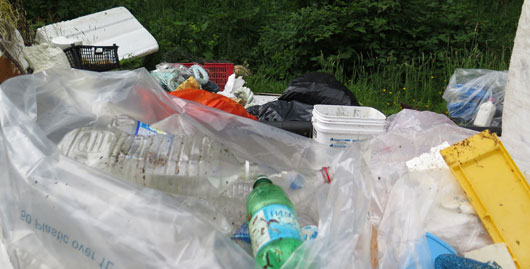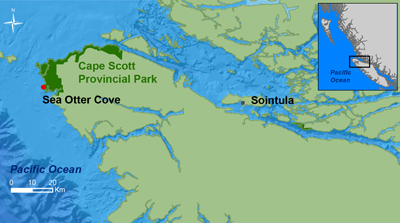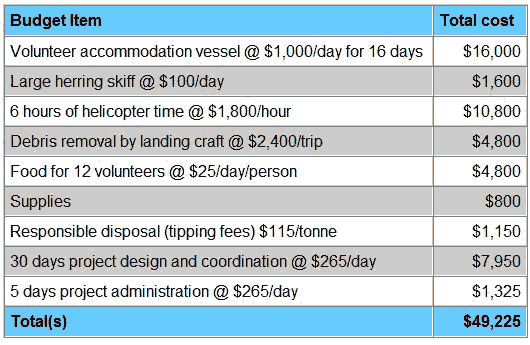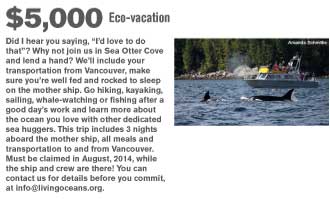Help us clean up Sea Otter Cove
Imagine the spectacular, rugged coast of northwest Vancouver Island: massive spruce and cedar forests rise up dark and green against grey-brown rock pounded by an ever-changing sea. It teems with wildlife. Here sea otters are staging a comeback. Whales feed on the richness of the sea. Seals, sea lions, shellfish, birds, and fish abound. There are few places of refuge along this coastline for wildlife or for mariners. Sea Otter Cove is the last safe harbor at the end of the island.
Now imagine every incoming tide laden with debris from the catastrophic tsunami that struck Japan in 2011 along with nets and trash carelessly discarded from vessels and shorelines around the Pacific Ocean. That is what washes ashore in these remote and once pristine wilds.

In Sea Otter Cove, washed up nets pose an immediate entanglement threat to the wildlife in the area. The plastic our world can't do without makes up the largest part of the debris. Left exposed to the elements, plastics break down and enter the food web. It all must be removed.
Plastics in the ocean collect organic pollutants from the seawater and those, too, enter the food web. The marine life affected will suffer a variety of ills, some of which will be passed down from generation to generation. It is vital that we prevent this from happening.
It's a big job but Living Oceans has the experience, local knowledge and networks to get it done. It's expensive to mount an expedition in such a remote area and we need your help. We know there are several tonnes of debris out there: this isn't a walk in the park!
 There is so much debris that it's going to take hundreds of hours of volunteer labor just to collect it. We need to train, transport, house and feed that volunteer workforce. They'll need a skiff to travel between their mother ship and the shore, and to transport the collected debris to a barge large enough to carry it all away. Some of the larger debris objects —like the broken Japanese skiff, propane tank and refrigerator we found will have to be airlifted to the barge by helicopter. Then it all needs to be sorted for responsible disposal.
There is so much debris that it's going to take hundreds of hours of volunteer labor just to collect it. We need to train, transport, house and feed that volunteer workforce. They'll need a skiff to travel between their mother ship and the shore, and to transport the collected debris to a barge large enough to carry it all away. Some of the larger debris objects —like the broken Japanese skiff, propane tank and refrigerator we found will have to be airlifted to the barge by helicopter. Then it all needs to be sorted for responsible disposal.The volunteers are donating their time to do the cleanup work. But we still need to transport, feed and house them and supply them with the tools they need to get the job done. Other partners are offering in-kind support because they too want to see Sea Otter Cove restored. Will you help us recover this debris before more creatures are entangled or exposed to toxic plastics?

This project is made possible by the generous contribution from the Government of Japan and its people. We gratefully acknowledge the support of the Province of British Columbia, Ministry of Environment.
This cleanup was in partnership with the Great Canadian Shoreline Cleanup, a joint conservation program led by the Vancouver Aquarium and World Wildlife Fund, and presented by Loblaw Companies Limited. Find out more at ShorelineCleanup.ca












